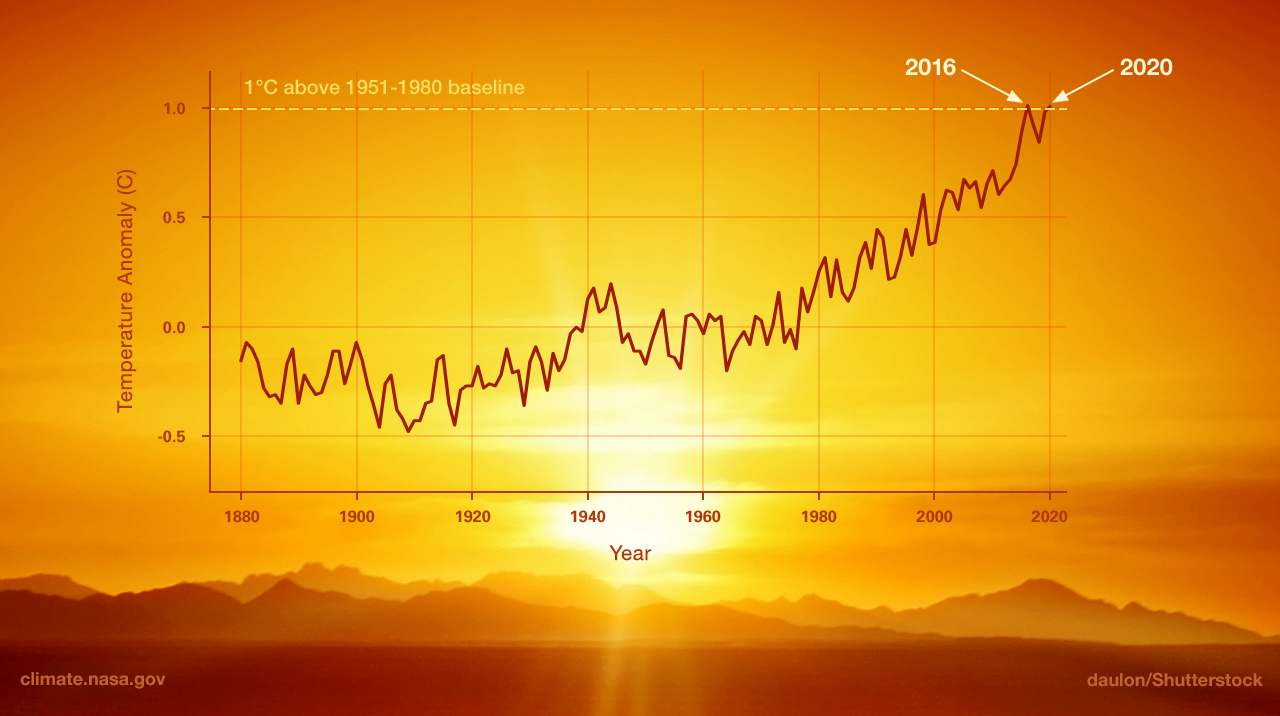
Global Warming vs. Climate Change Facts Climate Change Vital Signs
The global temperature record shows the fluctuations of the temperature of the atmosphere and the oceans through various spans of time. There are numerous estimates of temperatures since the end of the Pleistocene glaciation, particularly during the current Holocene epoch.

Climate change Earth had its hottest decade on record in 2010s
According to new data from the Copernicus Climate Change Service, Earth's average temperature last year was 1.48 degrees Celsius (2.66 degrees Fahrenheit) hotter than the preindustrial average.

Scientist Discusses Latest Report of Rising Global Temperatures
2023: +1.48°C. Data: ERA5, Copernicus Climate Change Service; Chart: Alice Feng/Axios. During the hottest year on record, the global average surface temperature fell just shy of the 1.5-degree warming limit under the Paris climate agreement. Why it matters: The climate of 2023 was the hottest seen in at least 125,000 years; for the first time.
2016 climate trends continue to break records Climate Change Vital
One is about how warm the Earth has been "lately." The other is about the coldest Earth's ever been. Our 4.54-billion-year-old planet probably experienced its hottest temperatures in its earliest days, when it was still colliding with other rocky debris ( planetesimals) careening around the solar system.

The unmistakable increase in global summer temperatures in one moving
Jan. 9, 2024. It's confirmed: 2023 was the planet's warmest year on record and perhaps in the last 100,000 years. By far. Average temperatures were 1.48 degrees Celsius, or 2.66 Fahrenheit.
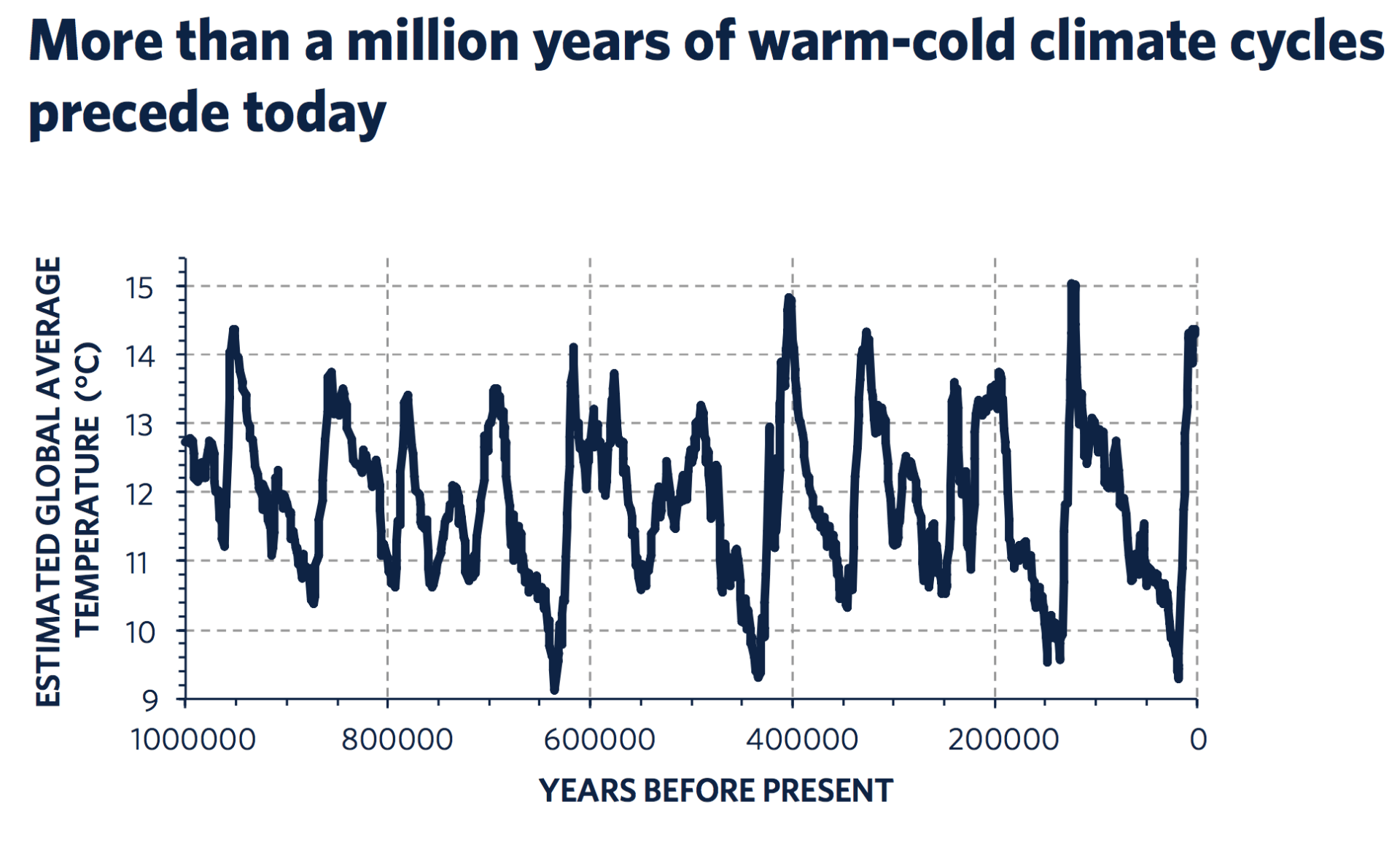
Climate Change in the Recent Past A Scientific Exploration Elan Ness
Nov. 10, 2021 A University of Arizona-led effort to reconstruct Earth's climate since the last ice age, about 24,000 years ago, highlights the main drivers of climate change and how far out of bounds human activity has pushed the climate system. The study, published Wednesday in Nature, has three main findings:
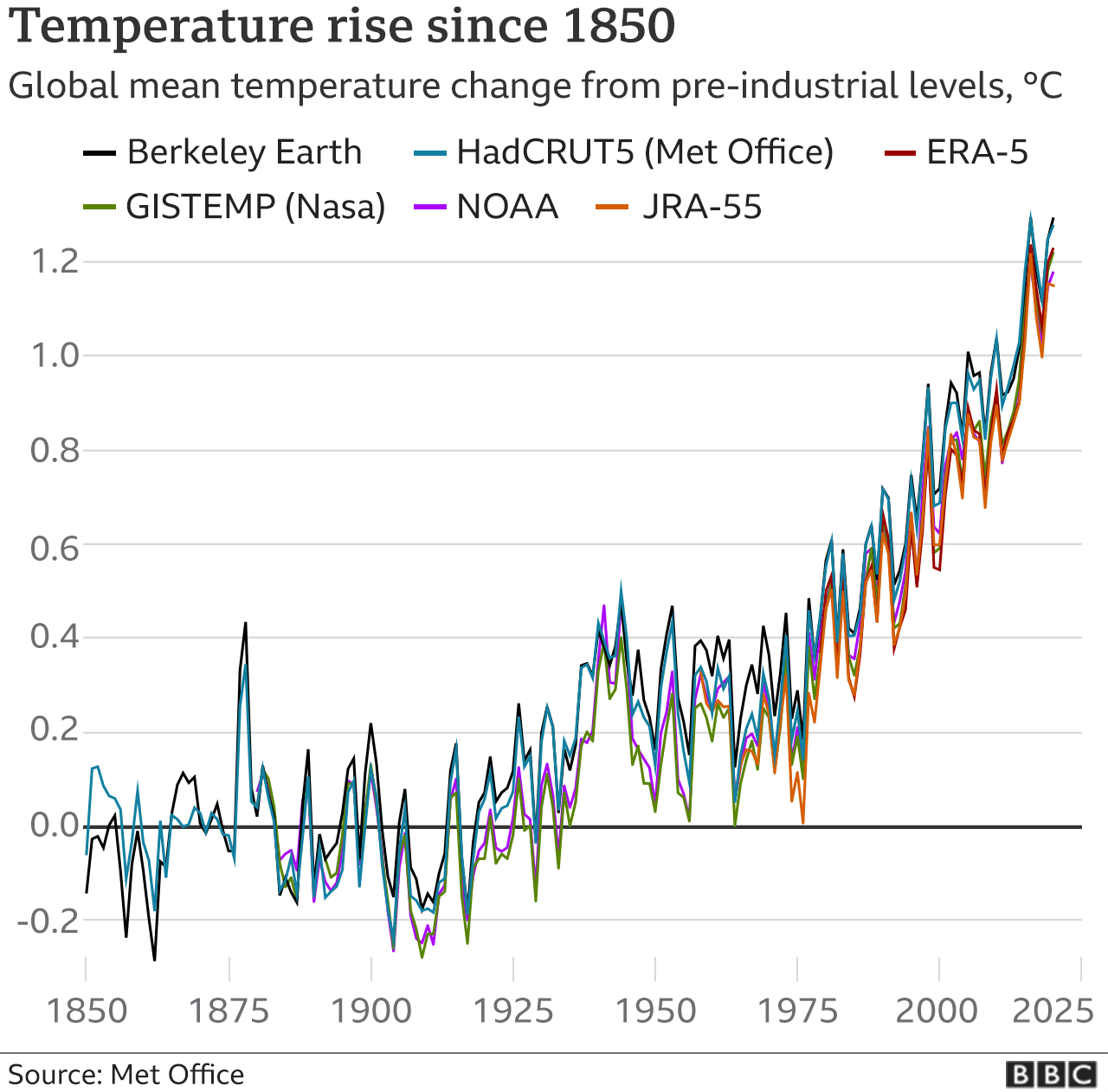
Climate World at risk of hitting temperature limit soon BBC News
NEWS AND VIEWS 10 November 2021 Global temperature changes mapped across the past 24,000 years Palaeoclimate data and models have been used to produce a comprehensive report of Earth's.

Earth Day 2016 A Historic Day For Earth's Future
Noaa calculated that last year's global temperature was 1.35C (2.4F) hotter, on average, than the pre-industrial era, which is slightly less than the 1.48C (2.6F) increase that EU scientists.

Highfidelity record of Earth's climate history puts current changes in
According to an ongoing temperature analysis led by scientists at NASA's Goddard Institute for Space Studies (GISS), the average global temperature on Earth has increased by at least 1.1° Celsius (1.9° Fahrenheit) since 1880. The majority of the warming has occurred since 1975, at a rate of roughly 0.15 to 0.20°C per decade.
/cdn.vox-cdn.com/uploads/chorus_asset/file/4253827/Holocene_Temperature_Variations.png)
Rand Paul says the climate has always changed. It’s true, but so what
November 10, 2021 Global temperatures over last 24,000 years show today's warming 'unprecedented' by University of Arizona Credit: CC0 Public Domain
Graphic Temperature vs Solar Activity Climate Change Vital Signs of
October 4, 2022 The last 12,000 years show a more complex climate history than previously thought by MARUM A Mean sea surface temperature (SST) gradient (defined as g=∥∇SST∥, calculated based.
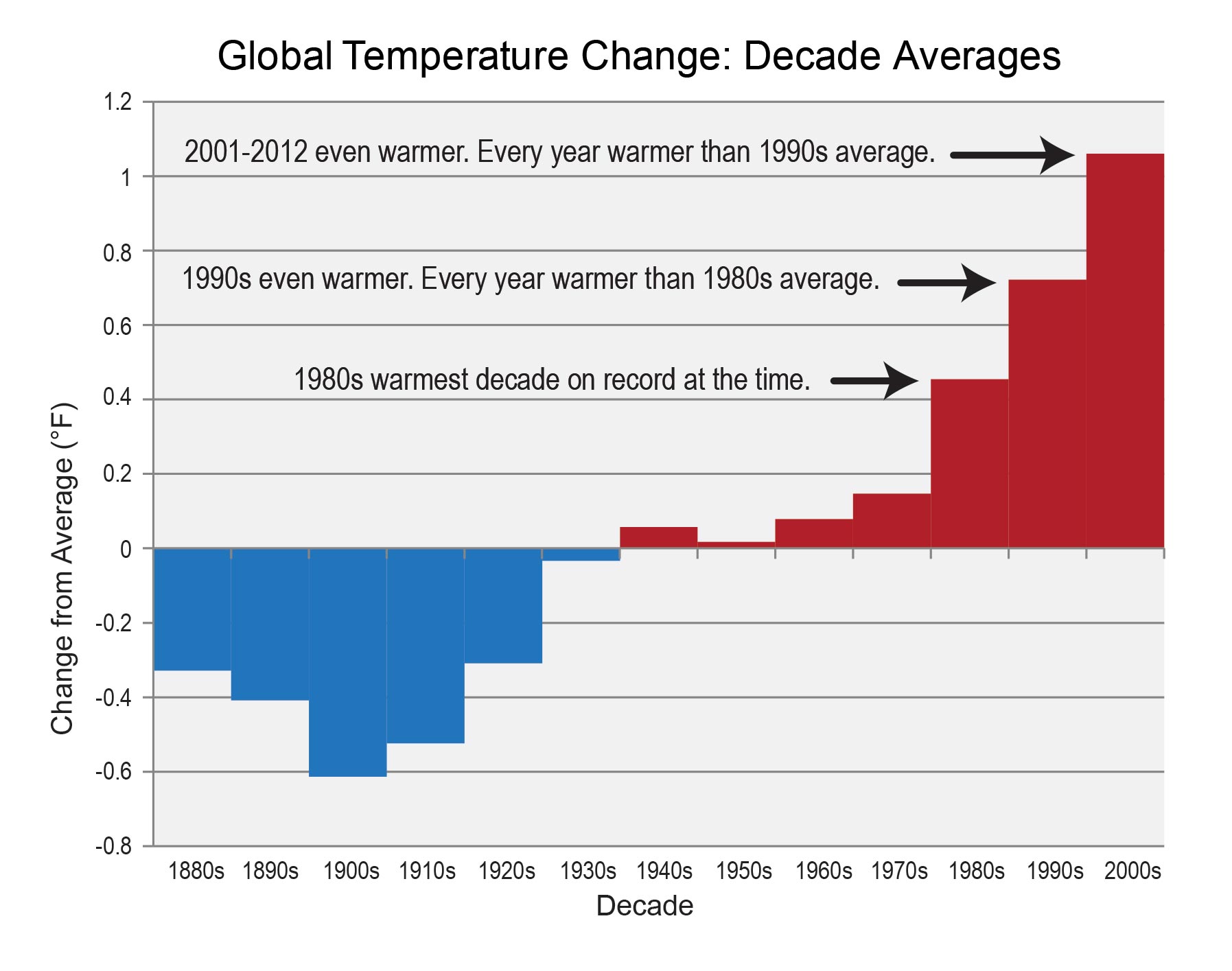
10 New Charts That Will Make You Want To Stop Global Warming
A study published in Nature has discovered the annual global temperature today is the warmest of the past 10,000 years, contrary to previous thought.

Why the Globe Hasn’t Warmed Much for the Past Decade Climate Central
News & Features Climate Q&A What's the hottest Earth has been "lately"? By Michon Scott Reviewed By Shaun Marcott AND Carrie Morrill Published September 17, 2014 Difference from historic average temperature since last ice age. NOAA Climate.gov cartoon by Emily Greenhalgh. Inspired by Figure 1 (b) in Marcott et al., 2014.
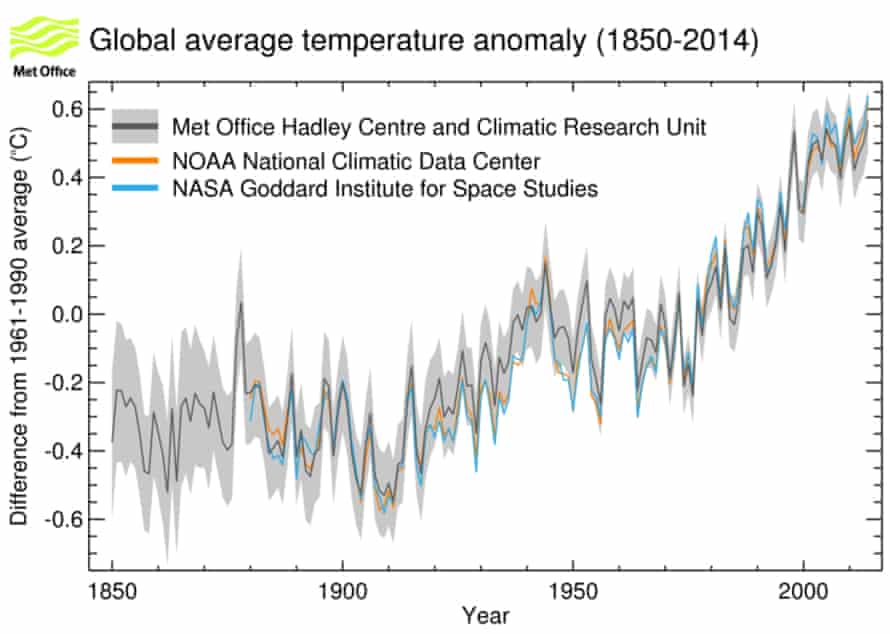
Climate change in charts from record global temperatures to science
This graph shows the change in global surface temperature compared to the long-term average from 1951 to 1980. The year 2020 statistically tied with 2016 for the hottest year on record since recordkeeping began in 1880 (source: NASA/GISS).NASA's analyses generally match independent analyses prepared by National Oceanic and Atmospheric Administration (NOAA) and other institutions.
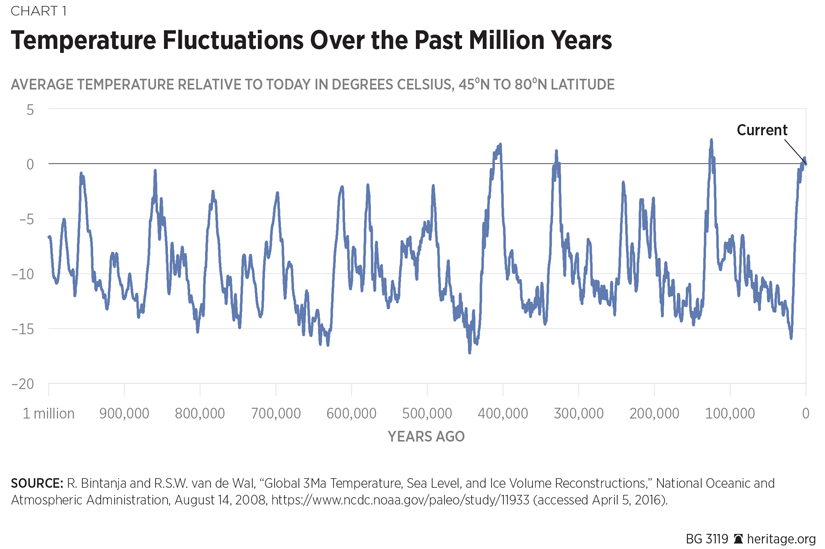
The State of Climate Science No Justification for Extreme Policies
Global temperatures over last 24,000 years. showed a slight cooling over the past 10,000 years, the new analysis shows a. would produce a graph of global temperature change over time that was

Chart Taking the Earth's Temperature Statista
The available timeseries of global-scale temperature anomalies are calculated with respect to the 1901-2000 average, while the mapping tool displays global-scale temperature anomalies with respect to the 1991-2020 base period. For more information on these anomalies, please visit Global Surface Temperature Anomalies.